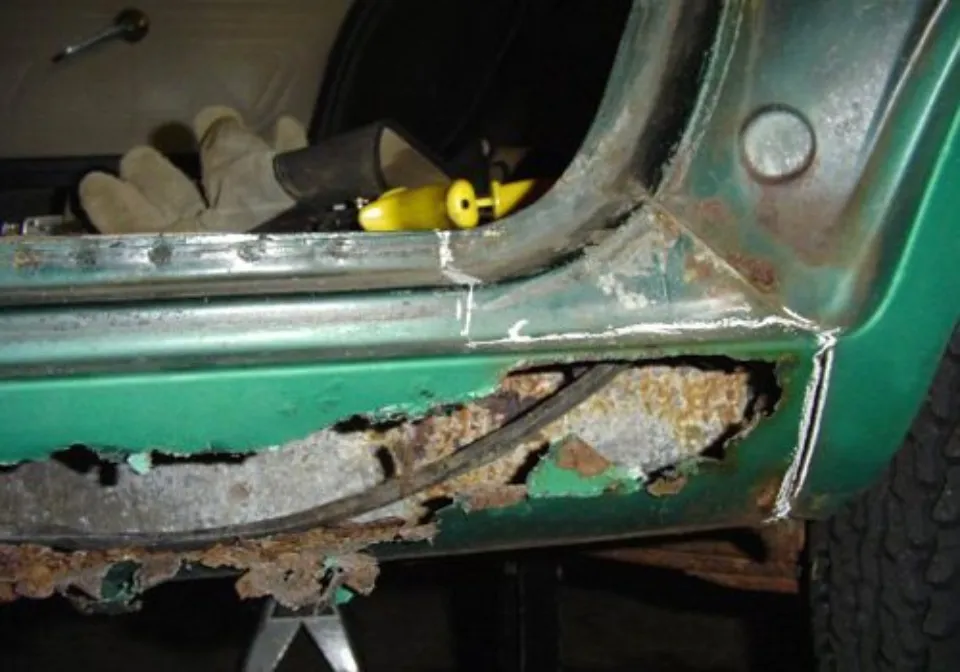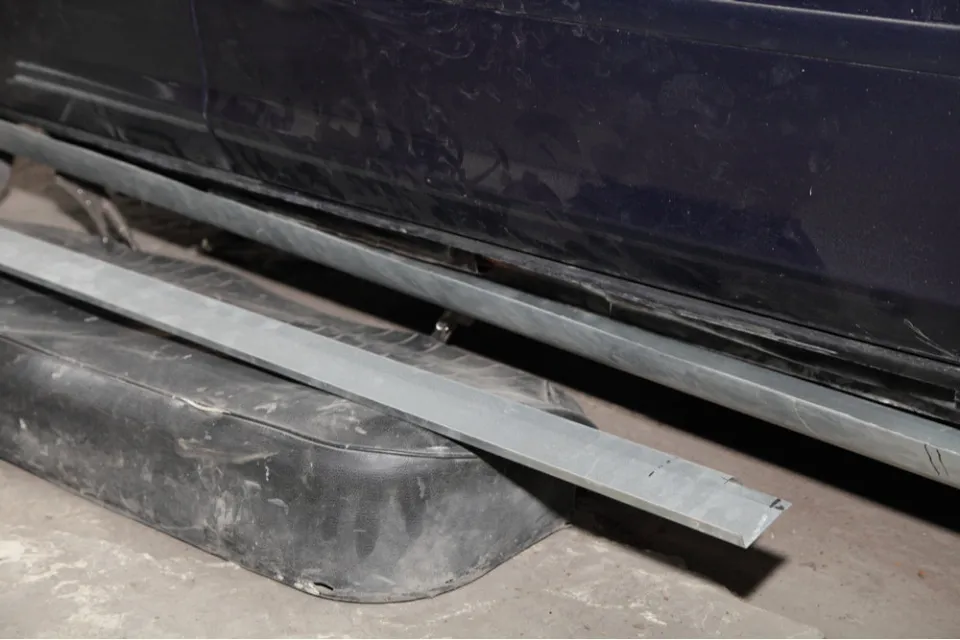
What are Rocker Panels on a Truck
Although they may not be well-known, rocker panels are a crucial component of your car. Rocker panels can now be produced at a rate that keeps up with our demands for automobile manufacturing thanks to manufacturing. We don’t go into great detail about how cars are constructed and put together. To get from point A to point B and back again, we use them every day. We can take these incredibly practical devices for granted. A car wouldn’t be a car without rocker panels, even though they are only one component of a vehicle. We make a point of producing a high-quality manufactured good because they are so essential to our daily lives.
What Are Rocker Panels
Strong, stamped metal pieces called “rocker panels” are a component of the car’s structural body. They are a crucial component that runs along the side of your car between the front and rear wheel wells. They are the only component of the structural body that joins the front and back of your car, aside from the roof supports. In other words, rocker panels prevent the front and back of your car from separating. It’s understandable how we take these devices for granted when you consider the metal object you step over every time you enter your car.
Ltc Method
LTC Roll and Engineering has a unique method for producing cutting-edge new rocker panels. We have collaborated with experts in OEM, engineering, and metallurgy to make them lighter, stronger, and more resilient. The creation of safer, yet more fuel-efficient, vehicles is what makes this kind of innovation so exciting. We were among the first businesses to create rocker panels from roll-formed martensite. We handle all of the fabrication and assembly in-house. The panels can be put directly into the vehicle after being delivered to the factory. Our dependable martensite rocker panels are currently made for four different models of cars by one significant automaker. Our distinct manufacturing process enables us to adapt to almost any type of vehicle.
The perfect illustration of a crucial component of your car that you might take for granted is a rocker panel. They keep the front and rear ends of your car, SUV, or truck connected. We at LTC Roll and Engineering are pleased to contribute to the manufacturing sector’s culture of ongoing innovation. It is incredible to be able to produce such a crucial puzzle piece in a way that is incredibly flexible.
Where is the Rocker Panel Located?
There is a rocker panel installed on each side of your car. These panels are located underneath your doors, between the openings for your front and rear wheels. They serve as the bottom edge of the cabin capsule, which shields you from injury in the event of an accident. They are joined to the front and back parts of your car.
Truck Rockers
For torsional stiffness, which is crucial for an off-road vehicle, the majority of body-on-frame trucks also use their rocker panels. Due to the higher ground clearance of most off-road trucks, these rocker panels can also serve as a stepping platform when entering the car.
Types of Rocker Panels
Sewn and slip-on replacement rocker panels fall into two categories. Here are the pros and cons of each type:
Welded Rocker Panels
This replacement rocker panel style requires welding to the body of your car. To avoid damaging them during installation, it is advised that you remove your doors and fenders first. The panels beneath your doors will fit more accurately as a result.
Most of the time, after installing the panels, you’ll still need to clean up the welds and prepare them for painting. If you’re not an expert do-it-yourselfer, we advise hiring a pro to complete the task for you.

Slip-on Rocker Panels
The majority of the time, slip-on rocker panels are fastened to your car using automotive adhesives or fasteners. These panels are simpler to install than welded ones, but it will still take some effort. Before installing the panels, you’ll need to remove any rust stains and drill rivet holes.
Slip-on rocker panel installation has the drawback that, in the event of a collision or other traumatic driving situation, the fasteners, screws, or rivets could come loose. Your rocker panels’ top edges may also start to show the fastener heads, but a body filler can hide these flaws.
Rust and Rocker Panels
Due to their location, rocker panels are the most vulnerable auto body components to rust. Road debris frequently causes damage to panels on the lower part of your car. Your rocker panels may also suffer from off-roading. These panels become more vulnerable to rust and corrosion as rocks and branches scratch them and chip off their paint.
Rocker rust may also be caused by dangerous chemicals like de-icing agents for roads. According to a 2017 AAA survey, over the previous five years, US drivers had to spend $15.4 billion on rust damage caused by de-icing chemicals.
The fact that your rocker panels are far below your line of sight makes it possible for you to overlook them when performing your regular car wash. If moisture, salt from the road, and other debris aren’t properly cleaned away, your rocker panels might start to rust. Additionally, some drivers add plastic or metal trim to their rocker panels, which makes cleaning them even more challenging.
Is It Safe to Drive With Rusted Rocker Panels?
The crashworthiness of a completely new vehicle is what determines how safe a new car is to drive. Rust can compromise the body integrity of a car, potentially making the cabin less crash-resistant, when it consumes the rocker panels. Rust holes might also let dangerous exhaust into the cabin.
Additionally, attaching your factory jack is next to impossible with a rusted rocker panel. It’s essential to fix any rust right away in order to stay out of this hassle.
How to Fix Rusted Rocker Panels
Replacement is the only solution for rusted rockers. Fortunately, there are a lot of aftermarket rocker panels on the market, making it simple to find replacement parts for your vehicle.
How Much Does a Rocker Panel Replacement Cost?
You could spend anywhere from $50 to $250 just on parts for a replacement rocker panel. Depending on the brand you select, some items may cost more. Your labor costs could range from $1000 to $4000. Although the price may seem high, it already includes the cost of removing your doors and polishing (for welded-type panels) after installation.
Rocker Panel Maintenance
You should clean your rocker panels properly to avoid corrosion damage over time because replacing them can be expensive. To prevent harming the coating on the panels, use caution when wiping away grime and dirt. We advise speaking with a specialist to get a recommendation if you’re unsure which cleaner to use.
Additionally, look for any rust on your rocker panels. Typically, the panel’s interior rusts first. It may indicate that the inner portion is severely rusted if you see rust on the outer surface.
It will strengthen the structural integrity of your vehicle and increase your driving confidence if you replace your rusted rocker panels. To keep your car in top condition for many years to come, have any rusted parts checked out and fixed right away.
Conclusion
Rocker panels, also known as rockers, are metal stampings that are a crucial component of your car’s body. Between the front and rear wheel well openings, just below the doors, they are situated along the sides of the vehicle. They primarily serve to reinforce the framework of your car and keep the middle from sagging. The only component of the car’s body that connects the front and back ends are the rocker panels and the roof supports. These panels contribute to a vehicle’s overall structural rigidity, which is a key element in ensuring the safety of you and your passengers.



Average Rating